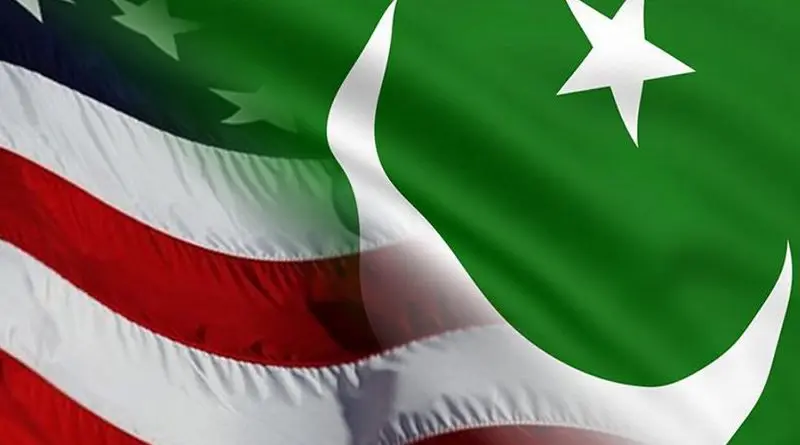Why IS US Silent On Pakistan’s Turmoil? – Analysis
By Observer Research Foundation
By Vivek Mishra and Sarral Sharma*
In August 2021, US President Joe Biden declared, following the withdrawal of troops from Afghanistan, and the second was the level of cooperation from Pakistan under the then-Imran Khan government. Nevertheless, the successful ‘over-the-horizon’ operation to take out al-Qaeda leader Ayman al-Zawahiri in Kabul in August 2022 and the unravelling of the political demise of Imran Khan indicate that both concerns have been overcome for now. As the US appears to be mending its relations with Pakistan, it will remain careful of the deepening political instability in the country, widespread public support for Imran Khan, and Islamabad’s ability to hedge too far with China to draw concessions.
The US has shown reluctance to respond to the political turmoil in Pakistan, particularly concerning the Pakistan Army’s brutal crackdown on former Prime Minister Imran Khan’s party. Apart from initial reactions from the State Department and a statement from Congresswoman Sheila Jackson Lee, the founder and chair of the US House’s Congressional Pakistan Caucus, Washington has thus far exercised restraint in expressing urgent concerns regarding the ongoing chaos in Pakistan. The silence from the Biden administration implies that the US has made a calculated decision to avoid any potential fallout with the Pakistan Army. Furthermore, Washington is aware that Pakistan’s powerful military establishment governs the country rather than its civilian governments. Consequently, the US feels more at ease working with the army of Pakistan on matters such as counterterrorism cooperation, developments in Afghanistan, and other defence-related matters.
Imran Khan has been blamed for damaging Pakistan-US relations during his tenure as Pakistan’s prime minister. The cypher leak controversy and Khan’s accusations regarding the alleged US involvement in his removal from power in April last year had
created serious tensions between the two countries. Therefore, Washington may not feel compelled to take sides between Imran Khan’s Pakistan Tehreek-i-Insaf (PTI) and the Army, claiming it as an “internal matter” of Pakistan. However, the limited response from the US could raise doubts in India. Washington has been accusing the Sheikh Hasina government in Bangladesh of alleged human rights violations and raising concerns about “free and fair” elections in the country. The Biden administration has even imposed sanctions on individuals in Bangladesh over alleged violations. Meanwhile, the US has not shown similar concerns regarding the weakening of democratic institutions in Pakistan.
After the May 9 violence, the Pakistan Army and the ruling Pakistan Democratic Movement (PDM) have reportedly decided to put Imran Khan’s supporters on trial in military courts under the Army Act and Official Secrets Act. Moreover, despite the Supreme Court of Pakistan’s ruling, provincial elections in Punjab and Khyber Pakhtunkhwa have yet to take place. Lastly, it is estimated that over 7,000 civilians are currently incarcerated in different jails in Pakistan, with a few PTI supporters, including renowned journalist Imran Riaz Khan, missing, possibly due to the actions of security agencies. Washington’s reluctance to acknowledge the Pakistan Army’s recent actions against civilians may only serve to strengthen the latter’s control in the country.
New Delhi may notice the US silence on the situation in Pakistan. More importantly, the US’ priorities in the Indian subcontinent may lead to differences between Washington and New Delhi, potentially allowing more room for China to exert influence in the region. As strategic partners, it is crucial for both India and the US to engage in candid discussions to address these noticeable differences. Ultimately, the increasing instability in the subcontinent could directly impact India’s security and stability. There are concerns in New Delhi regarding the safety and security of Pakistan’s nuclear assets amidst growing instability and reports of internal divisions within the Army.
At the broader level, as the US is trying to reconfigure its foothold in an altered West Asian region, Pakistan still remains a useful ally. A hastened withdrawal of US forces from Afghanistan, a somewhat cold relationship with Saudi Arabia, an antagonistic Iran, and a host of regional countries, including the UAE, hedging their bets between Beijing and Washington have all contributed to compel a silence in Biden’s Pakistan policy.
Eventually, the Biden administration may not have to do much more than maintain a timely silence on the internal affairs of the country and grant some financial doles.
About the authors:
- Vivek Mishra is a Fellow with ORF’s Strategic Studies Programme. His research interests include America in the Indian Ocean and Indo-Pacific and Asia-Pacific regions, particularly the role of the US in security in South Asia, Indo-US defence relations, and the Indian defence sector.
- Sarral Sharma is a Doctoral Candidate at Jawaharlal Nehru University, New Delhi. He has previously served in the National Security Council Secretariat
Source: This article was published by Observer Research Foundation and originally appeared in Deccan Herald.

